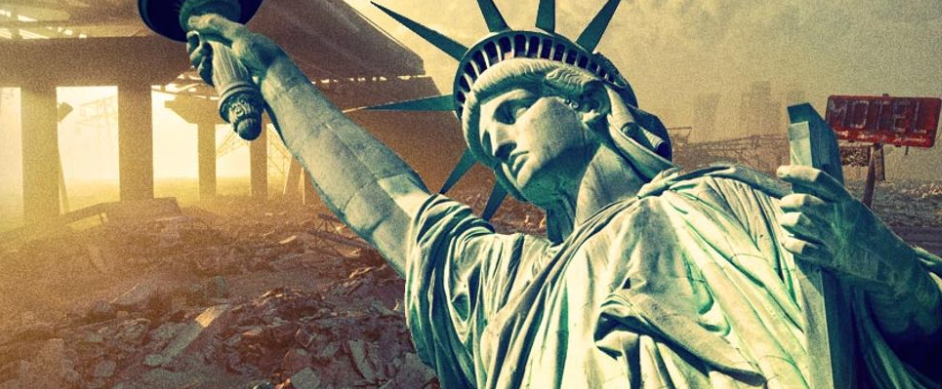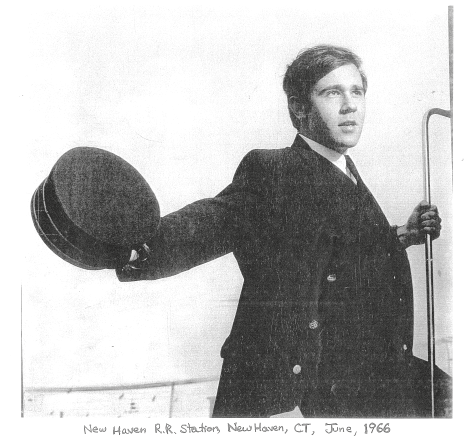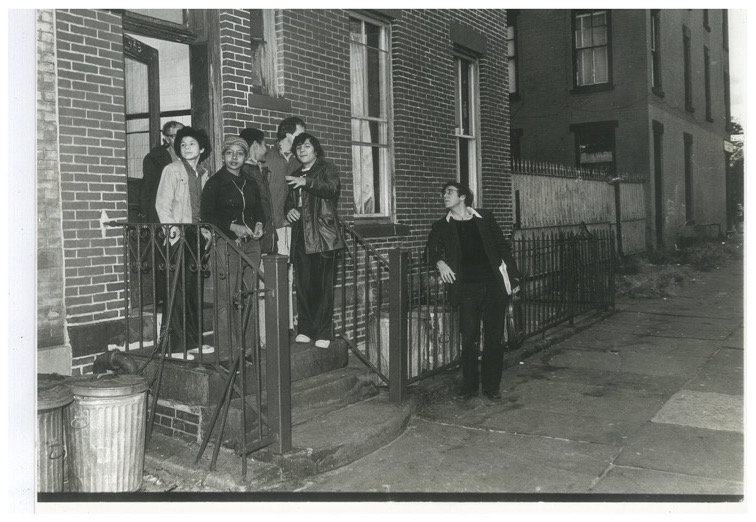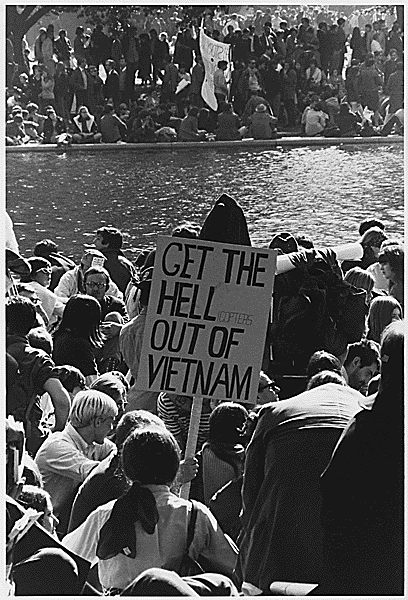What Israel’s 2009 war in Gaza should have taught us
(Written by Jim Sleeper and posted in 2009. Rescued and posted again on February 21st, 2024)
(Author’s Note: You’re about to dive into an Orwellian Memory Hole. The following was posted at Talking Points Memo in 2009, but you won’t find it there now. Along with several other writers’ columns concerning Israel, this one disappeared from TPM. The site’s founder and editor, Joshua Micah Marshall, told us that a technical snafu had disrupted the site and its archive. I had saved all of my columns, so I sent them to him, but they never were restored. Other websites’ links to my own and some other writers’ TPM columns about Israel now take you only to TPM’s homepage, not to the relevant columns, which TPM has not restored.
So I’ve restored one of mine, here below. The irony, if it is an irony, is that the following column, which Marshall posted for me on TPM in 2009, was so prescient about Israel’s 2024 war in Gaza that large portions of what I wrote then can be read now, almost uncannily, as if I’d written them in 2024. Very occasionally in what you’re about to read, I’ve inserted a brief editorial note, in italics, to update a fact or simply to remind you that what you’re reading was indeed written in 2009, not yesterday. Send your reactions to jimsleeper12@gmail.com, and re-post the column or share it with your list.)
(Posted on Talking Points Memo, January. 13, 2009, but then disappeared:)
How and How Not to Assess Israel’s Moral Self-Destruction
Israel’s blind, crushing, doomed war on Gaza has ended the Jewish people’s 65-year-long reprieve from anti-Semitism since the Holocaust, a reprieve that encompassed most of our lifetimes, during which even dedicated Jew-haters bit their tongues.
No more. Amid a cacophony of justified condemnations of Israel, you can hear strains of an older, creepier chorus. It’s not too much to say that Israel has brought this upon itself, but it is also not too much to say that some rather perverse people have wanted and tried to orchestrate the cacophony to the detriment of Jews.
I don’t mean that strong critics of Israel should quiet down. It’s long past time to break the taboo in the U.S. media on talking about Israel’s blunders and outrages at least as frankly as many Israelis themselves famously do. But I do mean to say that Israel’s conduct of this war (Note: in 2009), would be hideous and heartbreaking enough without the encouragement it’s getting from Israel’s impassioned defenders as well as from some of its critics who don’t know their history and sound as if they don’t want to know.
And there is a deeper political problem: Like the bloody combatants of the IDF, Hamas and Hezbollah, the armchair warriors on all sides don’t see that the odds of winning justice through state violence and wars of “liberation” have sunk since World War II. Yet many commentators’ blindness is as willful as the armed warriors’, and it’s as fateful, not only for Palestinians or Jews.
Look briefly at an accomplished writer on each side of this war — Chris Hedges, a scourge of Israel, and Jeff Goldberg, a sinuous defender. Then look at how Abraham Burg and Jonathan Schell argue, far more constructively and from no less experience, that although human nature hasn’t changed, the costs and consequences of violence have, as have the most effective ways to defeat tyranny and secure human dignity.
You may not think that we need to hear from dreamers at a moment like this. But Burg and Schell are the realists. Historic shifts in freedom’s always-cloudy prospects have confounded not only grand strategists and their apologists in national-security states (Britain, the U.S., the U.S.S.R., and fortress Israel), but also guerrillas and supporters of national-liberation movements in China, Vietnam, Nicaragua, and Palestine. Neither group seems aware that better movements, led by Gandhi, King, Mandela (after prison), Havel, Michnik and Northern Ireland, have re-constituted political power away from violence, sidelining established tyrannies and even the would-be tyrants and nihilists within their own movements. Writers and observers can help this transition if we believe that creative, disciplined non-violence isn’t merely a dream of chumps, naifs, or schlemiels. Tough, savvy veterans of conflict have shown that we don’t have to rush into the dead ends toward which the combatants and enablers of IDF and Hamas are beckoning us.
In 2002, amid the war on terror and the run-up to the Iraq war, Chris Hedges, a former New York Times war correspondent in Bosnia, Latin America, and Israel, published his mordantly titled book War is a Force That Gives us Meaning. More recently, he has published American Fascists: The Christian Right and the War on America and a torrent of articles about injustices perpetrated by elites at home and abroad, not least through and by Israel.
A Characteristic of Hedges’ torrent of condemnations is this passage from “The Language of Death,” a Jan. 12 [Note: 2009!] post in Truthdig:
“The incursion into Gaza is not about destroying Hamas. It is not about stopping rocket fire into Israel. It is not about achieving peace. The Israeli decision to rain death and destruction on Gaza, to use the lethal weapons of the modern battlefield on a largely defenseless civilian population, is the final phase of the decades-long campaign to ethnically cleanse Palestinians. The assault on Gaza is about creating squalid, lawless and impoverished ghettos where life for Palestinians will be barely sustainable. It is about building ringed Palestinian enclaves where Israel will always have the ability to shut off movement, food, medicine and goods to perpetuate misery. The Israeli attack on Gaza is about building a hell on earth.”
Hedges may well have read a cooler but otherwise wholly compatible assessment of Israel’s 42-year mishandling of Gaza which I showcased here on January 4, by Darryl Li, a former public information officer for the Palestinian Center for Human Rights. But I think that Hedges and Li could do more to advance justice if they’d help us answer questions about violent resistance such as the following:
Is it true that Hamas is what it is mainly because Israel’s policies are what they are? Or is there more to learn about how and why Zionism and Palestinian nationalism arose at the same time?
Would Hedges and Li prefer a two-state solution, or Israel’s absorption into a bi-national, democratic state whose majority would be Palestinian? If the latter, would human rights and civil rights fare better there than they have under Israeli occupation and within Israel’s 1967 borders, for the 1.5 million Arab citizens of Israel within those borders? What new balance of Israeli responsibility and Israeli-Palestinian interdependency might release these enemies from their degrading mutual loathing?
When Israelis say that they see no Palestinian or Arab disposition to serious self-government, to what extent are they right? To what extent are they just being racist? To what extent are they rationalizing their obsession about their own security at the expense of everyone else’s? Have Israelis been devoured by war as a force that gives them meaning? Won’t peace depend on getting the balance of truth right as much as it does on condemning the fighting?
Finally, does Hedges, who often recounts his firsthand witness of Israeli soldiers shooting Palestinian children for sport, think it inevitable that every drop of blood drawn by the oppressor’s lash will be avenged with blood drawn by the Arab sword, perhaps until Israelis are driven into the sea, having brought their destruction upon themselves? Does Hedges also accept the 19th-century blood-and-soil presumption that Jews never belonged in the Middle East any more than they belonged in Europe? Or does he see a more complex truth and a better way to reconcile power and justice?
I’ve read much of Hedges’ and Li’s work, but I haven’t yet found their answers to such questions.
Chris Hedges Doesn’t Hedge
I do know that the passage I’ve quoted from Hedges is about more than Israel and Palestine; it’s also about his justified but not-so-well-focused rage at injustice and hypocrisy in the world, especially when it’s sown by the American national-security state and its apologists. Hedges has become a volcano, erupting in Truthdig, Harper’s, and other venues. Recently, for example, he wrote with molten fury of the supercilious disdain he’d experienced at the hands of preppies and parvenus while in college. He has also laced into “America the Illiterate,” the Christian right, Bush’s nuclear apocalypse, fellow war correspondents, and more.
Hedges grew up in Maine and in rural parishes in upstate New York, where his father was a Presbyterian minister. He comes from a tough, old, working-class Yankee culture for which I have a fond if somewhat testy regard. A one-time Harvard Divinity School student, he erupts along the venerable if somewhat predictable lines of a New England Puritan jeremiad, the denunciatory sermon whose purpose, in the hands of latter-day Puritans such as the 19th century abolitionists William Lloyd Garrison and Harriet Beecher Stowe, has been to blast open new pathways to redemption on earth, if not in heaven.
America would be poorer and meaner without these prophets. They strengthened Lincoln’s melancholy commitment to the divine inexorability of bloody justice, steeling him to fight the Civil War to its bitter end. But who is the equivalent of “The Union” in Palestine now, in 2009, and who are the rebels? Israel in Gaza now resembles the Union General Sherman’s rampage in Atlanta, but if you look around a bit, you find that Hezbollah, Hamas, and Iran have been playing a long, slow game to turn the tables and do the same. They’re tramping out the vintage where the grapes of wrath are stored, and the demographic and moral odds may soon favor their theocratic, blood-and-soil vindication.
Hedges knows that his own ancestral Yankee Protestantism blessed the dispossession and slaughter of the inhabitants of the lands in New England that his family now calls home. He knows that that Protestantism drew heavily on the Old Testament to emulate and also encourage Zionism. The Rev. George Bush, a fifth-generation lineal antecedent of our President George W. Bush, was the first professor of Hebrew and Arabic at New York University in 1835. He wrote a long tract on the Old Testament’s Book of Ezekiel that foretold the restoration of the Jews to Palestine from all over the world for Armageddon.
If Hedges (and certain editors at Harper’s and Truthdig) can acknowledge even subliminally that their Puritan forebears have a thing or two to live down but that they displaced or projected it onto “the Jews,” the stars have aligned (Note: in 2009) to encourage his eruptions. Both Israel and Palestine may have to undergo their own civil wars or internal revolutions to defeat the fanaticism that is now driving them. but Hedges’ anger seems to have driven him to a somewhat reductionist analysis of the causes and consequences.
A similar moralism has sometimes led supporters of “national liberation movements” to look away when those movements become brutal, tyrannical and even genocidal in the very lands that they “liberate”. I cannot say that Hedges has gone that far, but he confines blame of Hamas to an elliptical line or two. He does give Israeli dissidents some credit, but he seems to hold no more hope for them than he does blame for Hamas.
Jeffrey Goldberg hedges, but only for one side.
On January 13, 2009, a few days after Chris Hedges’ condemnation of Israel appeared in Truthdig, the New York Times op-ed page ran Jeffrey Goldberg’s “Why Israel Can’t Make Peace With Hamas.” There, as in virtually every article of Goldberg’s I can recall, we learn that Goldberg — a Long-Island, New York-born and bred American, but also an Israeli army veteran — has often defied amazing personal dangers as a reporter in Africa, in Lebanon, in Gaza, and more. He has walked right up to and questioned people who, he lets us understand, would just as soon slit his throat as squint at him. In a variation on this theme, other Goldberg articles parade his easy familiarity with great leaders from Senator John McCain to Israeli Prime Minister Ehud Olmert, who for some reason talk to him as frankly they might talk in a private conversation with a brother-in-law.
I can’t pretend to account for how Goldberg accomplishes these journalistic feats, but I think I can take some account of what they accomplish. If Chris Hedges has become a volcano of denunciations of American imperialism and elitism and its spawn, Jeffrey Goldberg has become a geyser of irresistibly entertaining, informative, but cagey explanations for everything from the likelihood of a Saddam Hussein-Osama bin Laden connection to the fractured nobility of John McCain’s 2008 presidential bid and to Israelis’ damned-if-we-do, damned-if-we-don’t bravery in the face an Arab world that, we are assured, has wanted to exterminate them since long before 1948, let alone since 1967 or last month.
The one exception to Goldberg’s neo-con’ish propagandizing that I can recall is a chilling piece he wrote for The New Yorker in 2004 about fanatical Jewish settlers on the West Bank. He has not written for that magazine for awhile now and seems more comfortable with the crypto-conservative Atlantic Monthly, where he has a blog [Editorial note: He is now the editor-in-chief of that magazine].
It’s thanks to such editors that we have had no shortage of op-ed pieces by Donald Rumsfeld, Douglas Feith, or the American Enterprise Institute’s talking drone Danielle Pletka. They have certainly opened the gates to Goldberg (Note: Goldberg wrote for many publications in 2009 and was not yet the editor of The Atlantic, as he is now, in 2024). In yesterday’s Times op ed he reintroduced us to the late Hamas chieftain Nizar Rayyan — “husband of four, father of 12, scholar of Islam and unblushing executioner,” an “important recruiter of suicide bombers until Israel killed him two weeks ago” – who in 2006, Goldberg tells us with feigned nonchalance, “confessed to me one of his frustrations.” Goldberg tells us that Rayyan confessed that he despised fellow Palestinians in Fatah as sell-outs to the Jews, who are descended from pigs and apes and are “a curse to anyone who lives near them.”
Ever self-dramatizing, Goldberg wants us to marvel that Rayyan even talked with him – and talked theology with him, no less. He makes clear that Hamas’ intractable beliefs discredit Israeli leaders’ expectation that “Hamas can be bombed into moderation. This is a false and dangerous notion,” Goldberg warns us. “It is true that Hamas can be deterred militarily for a time, but tanks cannot defeat deeply felt belief.” Yet Goldberg hastens to add, on the evidence of the same fanaticism that he has so entertainingly presented, that “Hamas cannot be cajoled into moderation,” either.
We are left to conclude that we might as well bomb the Palestinians. “The only small chance for peace today,” Goldberg adds somewhat airily, “is the same chance that existed before the Gaza invasion: The moderate Arab states, Europe, the United States, and mainly, Israel, must help Hamas’ enemy, Fatah, prepare the West Bank for real freedom, and then hope that the people of Gaza, vast numbers of whom are unsympathetic to Hamas, see the West bank as an alternative to the squalid vision of [Hezbollah in Lebanon] and Nizar Rayyan.”
Does Goldberg really have any faith in this hope, which he twirls like a velvet cape to conclude his performance? Mightn’t this have been the moment for him to raise instead the possibility that Israel’s invasion of Gaza has discredited Fatah and its leader Mahmoud Abbas, who is now widely thought by Palestinians who are fleeing Israeli bombs to be the obsequious collaborator with Israel that Rayyan says he is?
Mightn’t this also have been the moment for Goldberg to note that Malcolm X and Louis Farrakhan, of America’s “Nation of Islam,” both subscribed to the same theology that considered whites, and especially Jews, as descendants of pigs and apes? Mightn’t he have noted that Malcolm X changed toward the end of his life (Note: Malcolm became somewhat more ecumenical and ‘peace’-oriented) and that, last summer, Farrakhan made a penitential, almost desperate endorsement of Barack Obama, who exemplifies for Muslims and Jews a peace-making way to campaign that Goldberg didn’t understand or expect would win?
No matter, for surely Goldberg’s Times piece has cajoled or scared at least some liberal readers into concluding that Israel must fight in Gaza to the bitter end. Maybe he’s right. Maybe his scoop on the thinking of Rayyan explains why.
Except that, on January 2, shortly after Rayyan was killed, Chris Hedges wrote, in Truthdig, that “I often visited Nizar Rayan [different spelling, same man]…who would meet me in his book-lined study….” Hedges is a lot more regretful than Goldberg that when Israeli F-16s attacked that house, Rayan “was decapitated in the blast. His body was thrown into the street by the explosions. His four wives and 11 children also were killed.”
Other reports, including Goldberg’s, inform us that two of the four wives were killed, but Hedges is engaging in literary protest as much as in reporting. When he acknowledges dark sides of Rayan that would lead most of us to conclude that Rayan had to be stopped, you know that a “but” is coming:
“Rayan supported tactics, including suicide bombings, which are morally repugnant. His hatred of Israel ran deep. His fundamentalist brand of Islam was distasteful. But as he and I were students of theology, our discussions frequently veered off into the nature of belief, Islam, the Koran, the Bible and the religious life. He was a serious, thoughtful man who had suffered deeply under the occupation and dedicated his life to resistance. He could have fled his home and gone underground with other Hamas leaders. Knowing him, I suspect he could not leave his children. Like him or not, he had tremendous courage.”
The rest of Hedges’ “but” is his description of Gaza City itself. Here he rises briefly to great reporting that Orwell might have given us, on the deprivation and squalor Israel has forced upon Gaza. He doesn’t question whether recruiting suicide bombers is an effective response, any more than Goldberg questions whether Rayyan’s fanaticism justifies Israel’s destruction of Gaza City.
There are Other, Better Voices
Both Hedges and Goldberg know of Avraham Burg, the former Knesset Speaker and head of the Jewish Agency and World Zionist Organization. As an officer in the paratroop corps, Burg became disillusioned during Israel’s Lebanon war of 1982. In1983, he was wounded by a grenade, not in Lebanon but in a Peace Now demonstration he’d joined in Jerusalem. Both Hedges and Goldberg need a long sit-down with Avraham Burg now.
Hedges needs it because Burg, who shares most of his criticisms of the Israeli government and public, could broaden his understanding, sensibility, and horizons. And Goldberg needs it because Burg, who knows everything that Goldberg knows about Israel’s enemies and more, has reached different conclusions about how Israel should respond.
Here I must let Burg speak for himself, as I did Darryl Li of the Palestinian Center for Human Rights. Then I’ll close with a few words about the writer and Yale lecturer Jonathan Schell, a veteran war correspondent in his own right and a brilliant expositor of new prospects for re-balancing power and violence.
In a recent column for the Israeli daily Haaretz entitled, “Why the West Can’t Win,” Burg writes the following, as only Israelis, who’ve all served together in a citizen army, can sometimes write to one another. (Note in 2024: If I could force Benjamin Netanyahu to do anything, it would be to memorize the following paragraphs by Burg, written prophetically in 2009:)
“Beyond the two piles of bodies and the mourning and bereavement of both peoples, through the fragmented voices of Israel’s leadership, it’s already possible to feel the sour taste of the next combat loss. We haven’t won anything since the Six-Day War. We managed to be saved from disaster in 1973, we got ensnared but survived in 1982, and there is no lack of other examples….. I think it’s no longer possible to win wars. We’re not the only ones who can’t; the West as a whole is incapable of doing so. It’s hard for me to remember a single war in the past 60 years that the United States clearly and decisively won…. Hiroshima and Nagasaki were destroyed, and from there the West embarked on a new path.
“Western Europe almost totally abandoned the war option. It doesn’t fight, and in any case isn’t assessed on the basis of its ability to win wars,” Burg writes. “The United States, by contrast, went from isolationism to being the country chiefly responsible for Western state-sponsored violence. It…. knows better than anyone how to deploy its forces to the starting line, but from there onward something always gets messed up. Korea wasn’t a wonderful victory, Vietnam ended in disgrace, and the Gulf wars are not considered great military achievements.
“[S]omething in the DNA of the West no longer allows it to declare war like it used to do…. The wars of the previous century, along with the Holocaust of European Jewry, taught the West several lessons, central among which is the abolition of the doctrine of war; the West went from destroying and humiliating the enemy to maintaining [the enemy’s] ability to rehabilitate itself, preserve its dignity, change and become a partner instead of a rival.
“….That’s where the new type of victory began – the kind that doesn’t wipe out the possibility of dialogue with yesterday’s rival. ….. The question remains as to how a just society fights enemies who do not share the same value system, and how to redefine what victory is.
“It seems to me,” Burg concludes, “that if the goal of a war is the destruction of the enemy, it is a war that is doomed to fail. For reasons that are well-known to us, it is no longer possible to annihilate nations or at least suppress their aspirations of independence. …. And if no dialogue with the enemy develops, then the war must be deemed a failure. “It therefore appears that Israel’s leadership in the Gaza war is due to fail in our names – just like the Palestinian religious leaders ushering their people to another failure rooted in ignoring the metamorphosis of the concept of victory, from subduing to talking, from slaughtering to bridge-building. Just as bridges were ultimately built above the tempestuous waters between Pearl Harbor and Hiroshima, between Dresden and London, and between Catholic and Protestant Dublin, there is a bridge between Sderot and Gaza. Those who do not tread on it will lead their nations to failure in all their wars.”
But what is that bridge, when Israel is facing Hezbollah’s 30,000 rockets to its North, Hamas’ intransigence to its South, a rising proportion of increasingly disaffected Arabs within its own borders, and Iran’s connivances and nuclear ambitions to its East?
For those chastened and disciplined enough to go beyond Hedges’ logic of Puritan condemnation of beleaguered, paranoid Israelis and Goldberg’s jaunty neo-conservative defiance, Jonathan Schell’s The Unconquerable World is the best way to survey the history and emerging premises of the very different logic that guided Gandhi, King, the later Mandela, the European dissidents, and the peacemakers of Northern Ireland. Schell does not address the Israeli-Palestinian conflict, but he does show how peoples that were as oppressed, beleaguered, and overpowered as the Palestinians managed to neutralize or even win over their venomous oppressors without eliminating them, and, indeed, without much bloodshed.








